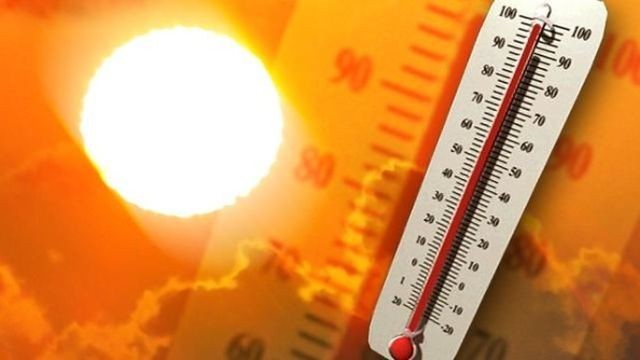
As New Jersey experiences one of its hottest summers on record, Camden County is feeling the heat.
The heat wave – a natural weather phenomenon, according to experts – occurs when a high-pressure system in the upper atmosphere traps warm air near the ground for several days to weeks. Known as a heat dome, the system compresses and warms the air, leading to soaring temperatures.
According to New Jersey State Climatologist David Robinson, the Garden State could be in the midst of its hottest summer on record, or at least one of its hottest. Robinson, along with his assistant Mat Gerbush, reported that the first half of 2024 has been the second hottest on record since the state started keeping reliable temperature statistics in 1895.
June was particularly brutal; it turned out to be the second hottest June on record in New Jersey, and globally, the hottest June ever recorded, according to Copernicus, a European climate service.
“When you start off the three months of summer with a near record and start off July on the warm side, it stands to reason that 2024 could challenge as the warmest on record,” Robinson told NJ Advance Media. “But of course, 2010 started off warmer and kept on giving, so that could be tough to beat.”
New Jersey’s hottest summer on record in 2010 had daily temperatures (daytime highs and overnight lows) averaging a steamy 75.7 degrees in June, July, and August, according to data from the state climatologist’s office. The next two hottest summers in the state were more recent: 2020 saw an average temperature of 75.3 degrees and 2022’s average was 75.1.
Of the 129 years of weather data, the 10 warmest summers in New Jersey have all been recorded during the last 25 years, reflecting a broader and global warming climate. But last summer was an anomaly, the 38th warmest in those 129 years and the state’s coolest summer since 2014.
To battle the heat, residents are advised to take precautions to stay cool. Hot temperatures can create situations where heat illnesses are possible.
“When temperatures rise to dangerous levels, remember to stay inside as much as possible, drink plenty of water, and contact a physician if you or a loved one is showing signs of heat stress,” said county Commissioner Virginia Betteridge, liaison to the Camden County Department of Health and Human Services.
To avoid heat-related illness, the county recommends the following:
- Avoid prolonged exposure to the sun: If you must be outside, wear a head covering such as a wide-brimmed hat or visor to protect your head and eyes.
- Use air-conditioners and fans: Open windows to release trapped hot air.
- Consult with your physician: Those taking regular medication should check if their medication causes adverse reactions in hot weather.
- Wear lightweight clothing: Choose light-colored and loose-fitting clothes.
- Stay hydrated: Drink plenty of non-alcoholic liquids, both warm and cool, to avoid dehydration.
- Maintain a normal diet: Continue eating regular, balanced meals.
- Take cool showers or baths: Use water that is near skin temperature.
- Never leave people or pets in cars: Ensure that children, the elderly, and pets are not left alone in vehicles.
- Ensure pets have water: Make sure your pets have access to fresh drinking water.
Early warning signs of heat stress include decreased energy, slight loss of appetite, faintness, light-headedness, and nausea. Anyone suffering from those symptoms should move to a cool environment, drink liquids, remove excess clothing and rest or seek immediate medical attention.
In an emergency, dial 911.









